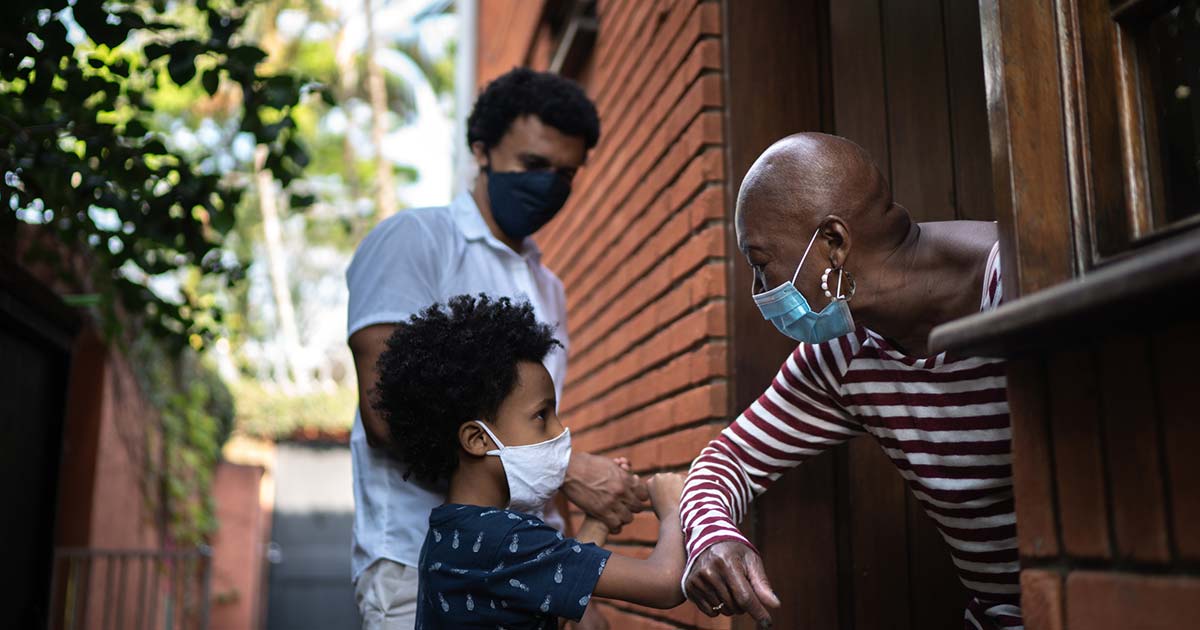COVID-19, State Efforts
What We Can Do to Protect All Louisianans From COVID-19

By now, you have seen the headline that the coronavirus pandemic is infecting and killing African Americans at outsized rates across the country. African Americans represent over 60% of reported deaths in Chicago, 62% of deaths in Milwaukee, and 38% of deaths in Missouri.
Here in Louisiana, African Americans represent 56% of coronavirus deaths, even though the community accounts for 32% of our state’s population.
It’s also likely that you’ve heard many of the reasons why, and it paints both a grim and sobering picture. Systemic racism in the health care system — coupled with preexisting chronic conditions — contributes to higher rates of infection and higher mortality rates. Being black is not bad for your health, but being black in America is.
Historically, communities of color have been subject to:
- Higher risks of exposure from working jobs designated as essential
- More likely to be uninsured than others
- A higher likelihood of not being able to practice social distancing due to housing and transportation challenges
These alarming statistics have been widely discussed by officials across the country, and also here in Louisiana. Now we want to start the conversation about what we can do to slow the spread of coronavirus within disproportionately affected communities to reduce the number of deaths and eventually fix the system, so it no longer fails African Americans.
First, it’s important for federal, state, and local governments to track and share COVID-19 data by race. We need increased transparency to shed light on how hard-hit communities of color are during this pandemic. Louisiana has already taken this first step in sharing the racial and ethnicity data on the state’s COVID-19 dashboard. With this information, we can better identify areas of need and distribute health care resources strategically.
Next, we must address and dismantle the historic and systemic barriers to care present in our health care system. Four years ago, Governor Edwards expanded Medicaid in Louisiana, giving 480,000 residents access to the care that they didn’t have before. This increase in access has not only lowered our state’s uninsured rate to below national averages, but it has also made Louisiana one of the states with the greatest access to primary care. However, people are apprehensive of systems that don’t benefit them or have treated them poorly their entire lives. What we have accomplished in the last four years is just the beginning of creating long-lasting, generational change on the pathway to better health outcomes.
Partnerships between local and state officials and community advocates are needed to reach hard-hit communities directly. Messages coming from well-respected figures and public officials create an atmosphere of trust that helps to validate information promoting safety and encourages listening to health care providers to adopt safety measures that help protect individuals and families during the outbreak.
Additionally, we also need to make sure patients are as informed as possible about COVID-19 symptoms and risk factors so they can better communicate their state of being with physicians. The state’s robust public messaging and newly increased telemedicine system are helping with this and we should begin to see positive results coming from these increased efforts.
The COVID-19 pandemic is impacting every aspect of American life, and, unfortunately, it is having an impact on some more than others. We must come to understand that this crisis has exposed the connections between personal access to affordable health care and to each other. We are only as healthy as the person next to us, and one person’s inability to access health care will affect us all. To move this moment, we have to make sure we take care of all Americans. The actions we take now to correct missteps will only serve all of us in the future by helping to create a more accessible and effective health care system for all of us.